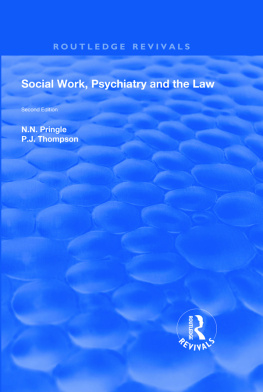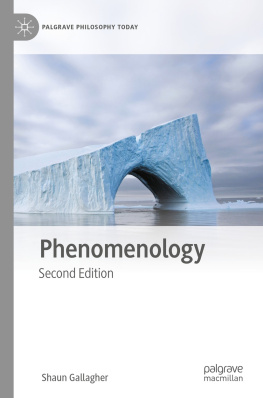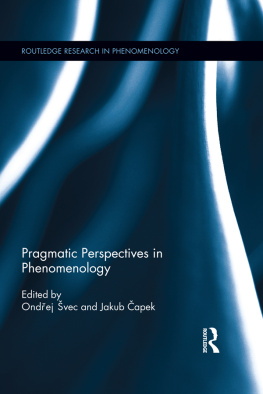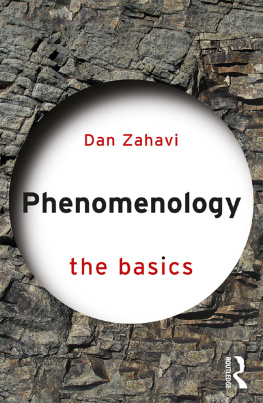Englander - Phenomenology and the Social Context of Psychiatry
Here you can read online Englander - Phenomenology and the Social Context of Psychiatry full text of the book (entire story) in english for free. Download pdf and epub, get meaning, cover and reviews about this ebook. publisher: Bloomsbury UK, genre: Religion. Description of the work, (preface) as well as reviews are available. Best literature library LitArk.com created for fans of good reading and offers a wide selection of genres:
Romance novel
Science fiction
Adventure
Detective
Science
History
Home and family
Prose
Art
Politics
Computer
Non-fiction
Religion
Business
Children
Humor
Choose a favorite category and find really read worthwhile books. Enjoy immersion in the world of imagination, feel the emotions of the characters or learn something new for yourself, make an fascinating discovery.

Phenomenology and the Social Context of Psychiatry: summary, description and annotation
We offer to read an annotation, description, summary or preface (depends on what the author of the book "Phenomenology and the Social Context of Psychiatry" wrote himself). If you haven't found the necessary information about the book — write in the comments, we will try to find it.
Englander: author's other books
Who wrote Phenomenology and the Social Context of Psychiatry? Find out the surname, the name of the author of the book and a list of all author's works by series.
Phenomenology and the Social Context of Psychiatry — read online for free the complete book (whole text) full work
Below is the text of the book, divided by pages. System saving the place of the last page read, allows you to conveniently read the book "Phenomenology and the Social Context of Psychiatry" online for free, without having to search again every time where you left off. Put a bookmark, and you can go to the page where you finished reading at any time.
Font size:
Interval:
Bookmark:

Phenomenology and the Social Context of Psychiatry
Bloomsbury Studies in Continental Philosophy
Presents cutting edge scholarship in the field of modern European thought. The wholly original arguments, perspectives and research findings in titles in this series make it an important and stimulating resource for students and academics from across the discipline.
Breathing with Luce Irigaray, edited by Lenart Skof and Emily A. Holmes
Deleuze and Art, Anne Sauvagnargues
Deleuze and the Diagram: Aesthetic Threads in Visual Organization, Jakub Zdebik
Derrida, Badiou and the Formal Imperative, Christopher Norris
Desire in Ashes: Deconstruction, Psychoanalysis, Philosophy, edited by Simon Morgan Wortham and Chiara Alfano
Early Phenomenology, edited by Brian Harding and Michael R. Kelly
Egalitarian Moments, Devin Zane Shaw
Ernst Bloch and His Contemporaries, Ivan Boldyrev
Why there is no Post-Structuralism in France, Johannes Angermuller
Gadamers Poetics: A Critique of Modern Aesthetics, John Arthos
Heidegger, History and the Holocaust, Mahon OBrien
Heidegger and the Emergence of the Question of Being, Jess Adrin Escudero
Husserls Ethics and Practical Intentionality, Susi Ferrarello
Immanent Transcendence: Reconfiguring Materialism in Continental Philosophy, Patrice Haynes
Merleau-Pontys Existential Phenomenology and the Realization of Philosophy, Bryan A. Smyth
Mortal Thought: Hlderlin and Philosophy, James Luchte
Nietzsche and Political Thought, edited by Keith Ansell-Pearson
Nietzsche as a Scholar of Antiquity, Helmut Heit
Philosophy, Sophistry, Antiphilosophy: Badious Dispute with Lyotard, Matthew R. McLennan
The Poetic Imagination in Heidegger and Schelling, Christopher Yates
Post-Rationalism: Psychoanalysis, Epistemology, and Marxism in Post-War France, Tom Eyers
Revisiting Normativity with Deleuze, edited by Rosi Braidotti and Patricia Pisters
Towards the Critique of Violence: Walter Benjamin and Giorgio Agamben, Brendan Moran and Carlo Salzani
Phenomenology and the Social Context of Psychiatry
Social Relations, Psychopathology, and Husserls Philosophy
Edited by Magnus Englander
Bloomsbury Academic
An imprint of Bloomsbury Publishing Plc

Bloomsbury Academic
An imprint of Bloomsbury Publishing Plc
50 Bedford Square 1385 Broadway
London New York
WC1B 3DP NY 10018
UK USA
www.bloomsbury.com
BLOOMSBURY and the Diana logo are trademarks of Bloomsbury Publishing Plc
First published 2018
Magnus Englander and contributors, 2018
Magnus Englander has asserted his right under the Copyright, Designs and Patents Act, 1988, to be identified as Author of this work.
All rights reserved. No part of this publication may be reproduced or transmitted in any form or by any means, electronic or mechanical, including photocopying, recording, or any information storage or retrieval system, without prior permission in writing from the publishers.
No responsibility for loss caused to any individual or organization acting on or refraining from action as a result of the material in this publication can be accepted by Bloomsbury or the author.
British Library Cataloguing-in-Publication Data
A catalogue record for this book is available from the British Library.
ISBN: HB: 9781350044302
ePDF: 9781350044319
ePub: 9781350044326
Library of Congress Cataloging-in-Publication Data
A catalog record for this book is available from the Library of Congress.
Series: Bloomsbury Studies in Continental Philosophy
To find out more about our authors and books visit www.bloomsbury.com. Here you will find extracts, author interviews, details of forthcoming events and the option to sign up for our newsletters.
Contents
Marc Applebaum, PhD, faculty member in the College of Social Sciences, Department of Humanistic and Clinical Psychology, Saybrook University, Oakland, CA, USA.
Rob Bongaardt, PhD, professor at the Faculty of Health and Social Sciences, University College of Southeast Norway, Porsgrunn, Norway.
Scott D. Churchill, PhD, professor of psychology at the Department of Psychology at the University of Dallas, Irving, TX, USA.
Larry Davidson, PhD, professor of psychiatry and director of the Program for Recovery and Community Health, Yale School of Medicine, New Haven, CT, USA.
Miraj U. Desai, PhD, associate research scientist and faculty member, Program for Recovery and Community Health, Yale School of Medicine, New Haven, CT, USA.
Magnus Englander, PhD, associate professor at the Faculty of Health and Society, Department of Social Work, Malm University, Malm, Sweden.
Susi Ferrarello, PhD, faculty member at the Department of Philosophy, University of San Francisco, San Francisco, CA, USA.
Thomas Fuchs, MD, PhD, Karl Jaspers Professor for Philosophical Foundations of Psychiatry and Psychotherapy at the University of Heidelberg and the Clinic for General Psychiatry, Center for Psychosocial Medicine, University Clinic Heidelberg, Heidelberg, Germany.
Mads Gram Henriksen, PhD, senior lecturer & researcher at Mental Health Center Glostrup, University Hospital of Copenhagen, and Center for Subjectivity Research, University of Copenhagen, Denmark.
Emily Maynard, PhD, postdoctoral fellow in clinical psychology, Gevirtz Graduate School of Education, University of California, Santa Barbara, USA.
Justin R. Misurell, Ph.D. Clinical Assistant Professor of Child and Adolescent Psychiatry at the Child Study Center at NYU Langone Medical Center, NY, USA.
Mary Beth Morrissey, PhD, Research Fellow, Global Healthcare Innovation Management Center, Fordham University, NY, USA.
Batya Rotter, PhD, independent practice of psychology, Jerusalem, Israel.
Idun Rseth, PhD, psychologist at the Department of Child and Adolescent Psychiatry, Telemark Hospital, Skien, Norway.
Nicoletta C. Skoufalos, PhD, GreenTPsychology LLC, New York City, USA.
Samuel Thoma, MD, researcher at the University of Heidelberg and the Clinic for General Psychiatry, Center for Psychosocial Medicine, University Clinic Heidelberg (with a PhD project entitled Phnomenologisch-anthropologische Grundlagen der Sozialpsychatrie), Heidelberg, Germany.
Frederick J. Wertz, PhD, professor of psychology, Department of Psychology, Fordham University, New York City, NY, USA.
Magnus Englander
This book is about the foundations of a social psychiatry. The overall purpose is to go beyond social psychiatry as it currently relates to the social sciences (as in, e.g., Morgan & Bhugra, 2010) and disclose its phenomenological ground. However, it is not in our interest to stand opposed to social psychiatry as a social science, nor to refute psychiatry as a medical science, but to seek the essence of psychiatry within the social world. Karl Jaspers (1913/1997, p. 710) once wrote,
The transmission of culture like the entire life of man is accomplished within a community. The individual reaches his fulfillment and finds his place, meaning and field of activity in the community in which he lives. The tensions between himself and the community are one of the understandable sources of his psychiatric disturbances. Every moment of the day the community is effectively present for every individual.
Font size:
Interval:
Bookmark:
Similar books «Phenomenology and the Social Context of Psychiatry»
Look at similar books to Phenomenology and the Social Context of Psychiatry. We have selected literature similar in name and meaning in the hope of providing readers with more options to find new, interesting, not yet read works.
Discussion, reviews of the book Phenomenology and the Social Context of Psychiatry and just readers' own opinions. Leave your comments, write what you think about the work, its meaning or the main characters. Specify what exactly you liked and what you didn't like, and why you think so.










